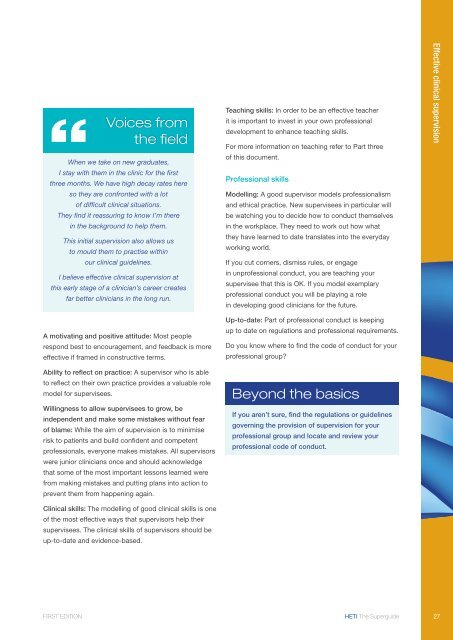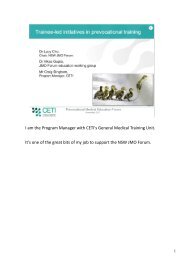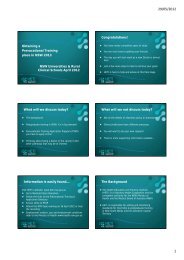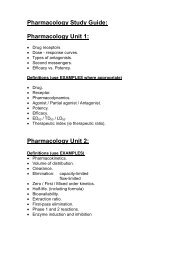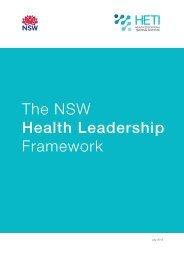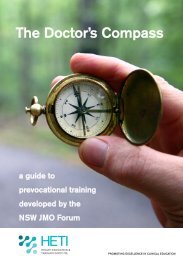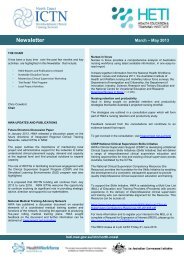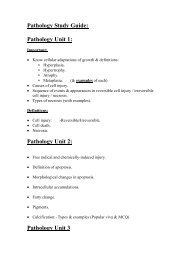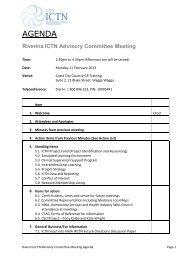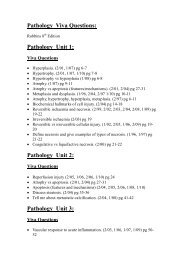Open - HETI - NSW Government
Open - HETI - NSW Government
Open - HETI - NSW Government
- No tags were found...
Create successful ePaper yourself
Turn your PDF publications into a flip-book with our unique Google optimized e-Paper software.
Voices fromthe fieldWhen we take on new graduates,I stay with them in the clinic for the firstthree months. We have high decay rates hereso they are confronted with a lotof difficult clinical situations.They find it reassuring to know I’m therein the background to help them.This initial supervision also allows usto mould them to practise withinour clinical guidelines.I believe effective clinical supervision atthis early stage of a clinician’s career createsfar better clinicians in the long run.Teaching skills: In order to be an effective teacherit is important to invest in your own professionaldevelopment to enhance teaching skills.For more information on teaching refer to Part threeof this document.Professional skillsModelling: A good supervisor models professionalismand ethical practice. New supervisees in particular willbe watching you to decide how to conduct themselvesin the workplace. They need to work out how whatthey have learned to date translates into the everydayworking world.If you cut corners, dismiss rules, or engagein unprofessional conduct, you are teaching yoursupervisee that this is OK. If you model exemplaryprofessional conduct you will be playing a rolein developing good clinicians for the future.Effective clinical supervisionA motivating and positive attitude: Most peoplerespond best to encouragement, and feedback is moreeffective if framed in constructive terms.Ability to reflect on practice: A supervisor who is ableto reflect on their own practice provides a valuable rolemodel for supervisees.Willingness to allow supervisees to grow, beindependent and make some mistakes without fearof blame: While the aim of supervision is to minimiserisk to patients and build confident and competentprofessionals, everyone makes mistakes. All supervisorswere junior clinicians once and should acknowledgethat some of the most important lessons learned werefrom making mistakes and putting plans into action toprevent them from happening again.Clinical skills: The modelling of good clinical skills is oneof the most effective ways that supervisors help theirsupervisees. The clinical skills of supervisors should beup-to-date and evidence-based.Up-to-date: Part of professional conduct is keepingup to date on regulations and professional requirements.Do you know where to find the code of conduct for yourprofessional group?Beyond the basicsIf you aren’t sure, find the regulations or guidelinesgoverning the provision of supervision for yourprofessional group and locate and review yourprofessional code of conduct.FIRST EDITION<strong>HETI</strong> The Superguide27


